Maida Vale Studio 4
COMPANY INFORMATION
BACKGROUND
BBC Maida Vale Studio 4 is a renowned recording studio located in Maida Vale, London, England. It is part of the BBC’s Maida Vale Studios complex, which has been an iconic hub for music recording and broadcasting since its establishment in 1934. Studio 4, in particular, has gained a reputation for its exceptional acoustics and state-of-the-art recording facilities.
Throughout its history, Studio 4 has been utilized for a wide range of purposes, including live performances, studio recordings, and broadcasts. It has hosted countless sessions by both emerging artists and established musicians across various genres, including classical, jazz, rock, pop, and electronic music.
From 1967 to 2004, the John Peel Sessions were recorded in studio MV4. At first, many other venues around London were also used, such as the Playhouse Theatre in Charing Cross, but as these ceased to be used by the BBC, the sessions increasingly centred on Maida Vale 4. Music sessions were once a mainstay of BBC Radio programming, as there were strict limits on the amount of commercially recorded music that could be aired, known as needle-time restrictions, so the BBC regularly booked musicians to record music exclusively for broadcast. In the early 1960s, when the BBC began to give some limited coverage of pop groups such as The Beatles, it was found that the sessions allowed up-and-coming bands to gain exposure and for musicians and groups to try out new material, play covers they would not include on their albums, whilst also experimenting with different sounds and guest musicians.
With the introduction of Radio 1 in 1967, programmes such as Top Gear embraced this concept, with sessions from stars-in-waiting such as David Bowie, Led Zeppelin, and Jimi Hendrix. When one of Top Gear’s presenters, John Peel, gained his programme, specially commissioned recording sessions had a new outlet. Most of the artists were relatively unknown even to Peel’s listeners: he and his producer would often invite bands on the strength of a rough demo tape or gig to hear what they could do, and for many of the bands, it was their first experience of a professional recording studio, not to mention a much-needed boost to their finances. The format became standardised as a single session in the studio with a staff producer and engineer (or more latterly, a producer-engineer and assistant), during which the artists would record four songs, but there were also some sessions which were either life to air or pre-recorded as live with an audience. Other Radio 1 programmes and DJs adopted a similar system of Maida Vale sessions, such as Janice Long, Andy Kershaw, and The Evening Session (whose former host, Zane Lowe, has nicknamed the studio ‘Maida Vegas’), as well as the more direct inheritors of the Peel Sessions tradition, Huw Stevens, Rob da Bank and Mike Davies.
Peel said, “The Clash did half one, then amazingly said that the equipment in the studio wasn’t up to the standards they’d expected, so they couldn’t complete the session. Which seemed to me to be unbearably pretentious of them”. Some albums by the Fall were entirely recorded there. The last band to record a Peel session was Skimmer, at Maida Vale Studios on 21 October 2004.
Robin Dallaway of The Cravats remarked that recording at Maida Vale was like stepping back into the 1940s: “blokes in brown stockmen’s coats scurried around fixing stuff and plugging our gear in.” When Broadcast made their Peel sessions, Trish Keenan wrote, “There was a sense of initiation on entering the Maida Vale studios. … we wandered through the corridors, peering through the windows of locked rooms, on a hunt for the Radiophonic Workshop. We came across abandoned tape machines and Shostakovich posters in the hallways… We hovered outside the locked Radiophonic room, a little disappointed by what we could see through the window. We contemplated unscrewing the Radiophonic Workshop nameplate from the door and making off with it but knew the stern-faced security guard from earlier would have been on to us.”
On 5 May 2020, the studios were added to the List of Buildings of Special Architectural or Historic Interest by Historic England. In September 2020, it was revealed that the BBC were lodging an objection to the listing, reportedly so that it could sell off the property. It was reported in February 2022 that the UK’s Department for Culture, Media and Sport had turned down the appeal. The building is Grade II listed.
In November 2022, the studios went on sale for over £10.5 million. The studios were subsequently sold to a partnership between Tim Bevan & Eric Fellner and Hans Zimmer & Steven Kofsky for £10.5 million.
References
Extensive efforts have been made to gather factual information and knowledge on madness from various sources and document them. These sources include publicly accessible websites, books and publications, historical artefacts, and other pertinent materials. As a result, a comprehensive index of resources has been compiled and integrated into the website. These resources, if relevant to this article, are listed below.
| Reference | Source |
|---|---|
| wikipedia.org | Website |
